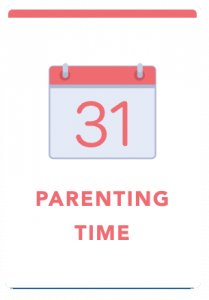Family Lawyers Denver, CO
At Modern Family Law, our Denver family lawyers are dedicated to a compassionate approach that minimizes conflict and reduces costs. Understanding that family law matters represent a pivotal moment in your life, we provide expert guidance to help you navigate these challenges. Our focus is not just on resolving conflicts but on empowering you to make informed decisions that pave the way for a new beginning.
Family legal issues, especially high-conflict situations, demand a lawyer who not only listens but truly understands your unique circumstances. While some cases may seem to require aggressive tactics, our experienced family lawyers in Denver believe in a strategy that protects your interests without unnecessary confrontation. This approach not only saves time and money but also focuses on achieving substantial outcomes efficiently.
In Denver County, handling family law cases typically begins with filing the necessary legal documents with the court. This could relate to divorce, parenting plans, child custody, or child support. The court often encourages mediation as a first step, where both parties can negotiate essential aspects such as asset division, financial arrangements, and parenting schedules. If an agreement isn’t reached during mediation, the court will then schedule a hearing to resolve the disputes. At Modern Family Law, we stand ready to guide you through every step, ensuring that you receive not only legal representation but also a supportive partnership that seeks the best for you and your family.
What Practice Areas Are Included In
Denver Family Law?
Divorce in Denver
In Denver, a divorce is an act of requesting a marriage to legally be dissolved by the court. During the divorce process, there are many considerations that are taken into account. For example, assets, finances, debt, custody, parenting time, and decision-making. In addition, any property, automobiles, furniture and so on that were bought during the marriage are considered “marital property”.
These properties will need to be divided during the divorce process. The same concept is used for debts in Denver family law; any credit cards, loans, outstanding bills, and balances are also divided in the process. Keep in mind that in Denver it takes a minimum of 91 days to finalize a divorce, from the initial filing to the final court order.
Child Custody in Denver
Child custody is the legal term used to identify the parent or legal guardian who cares for the child’s best interest. In Denver, this includes any matters about the child such as education, health, religion, and the child’s day-to-day well-being.
Child custody can sometimes be referred to as parenting time. Denver’s child custody laws tell us that just because one parent has full legal custody of a child it does not mean that the secondary parent can’t practice parenting time with the child as well. This can mean that while one Denver parent makes all the education, health, and religious decisions the other parent has parenting time with their child as well. In other custody matters, Denver law will stipulate a 50/50 custody share. This means that the parents have agreed that they will both make decisions about all of their child’s matters. Learn more about parenting time in Denver by using our parenting time calculator.
Child Support in Denver
After a divorce, the separated parties in Denver will work towards agreeing on a parenting plan that will work in the best interest of the child. Once an agreement has been settled the child support gets calculated. Child support is a payment made by one parent to support the child’s basic needs; payments are usually a fixed amount made monthly. It’s always best to seek a Denver family law attorney to better understand how child support is calculated for both parties.
Utilize our child support calculator to assist you in calculating what your average child support could be. There are specific considerations you will need to take into account as they relate to your child support case in Denver. For example, how many children you have, medical expenses for the child, available health insurance for each party, and school tuition are all factors that can make your child support payments look different.
Separation in Denver
A legal separation in Denver is treated just as divorce is in court. Whether it be assets, debt, parenting time, or custody, everything is taken into account. The only difference between a legal separation and a divorce in Denver is that although the parties will be legally separated, they are still legally married.
In most cases, when people prefer a legal separation rather than a divorce it’s due to religious beliefs, cultural beliefs, or for the sake of keeping spousal insurance that they would otherwise lose in a divorce. The procedures in Denver for a legal separation and a Divorce are basically the same, the main difference is the title assigned to you by the Denver courts. In a divorce you are dissolved in marriage, you break all ties with the other party and never have to speak to them if you don’t want to. While in Denver legal separations, you still divide assets properties, and/or debts, you still agree on a parenting plan, and you still hold the title of being legally married.
Civil Unions in Denver
A civil union in Denver is an arrangement to establish a legal relationship between you and your partner. This legal relationship is treated just like a marriage in the state of Colorado. This allows you and your partner, same-sex or opposite-sex, to receive spousal benefits along with spousal responsibilities and legal protection. These benefits and responsibilities include financial support, child support, rights to real estate and or property.
A civil union is only recognized as a state-wide relationship, which means there are no federal rights such as filing income tax as a married couple or social security benefits. Colorado is one of only five states that allow and recognize a civil union. The other states are Hawaii, Illinois, Vermont, and New Jersey.
Paternity in Denver
Going through a paternity process can be very stressful. Paternity is the legal term used meaning to identify the father of a child. In Denver, the father can either sign the birth certificate when the child is born or voluntarily sign an acknowledgment of paternity to confirm that he is the legal father of the child. Once the father signs this form his name will be added to the birth certificate.
If the alleged father of a child denies or declines to sign the birth certificate or acknowledgment, then the mother can file a paternity case. In Denver, a paternity case can be filed along with a child support or custody order. When filing a child custody or child support case the court will require paternity to be established before entering any orders.
Protection Orders in Denver
It is important to understand what a protection order is and how to obtain one in Denver. If you think you are in a relationship with domestic violence it’s crucial to seek a Denver family attorney who can guide you through the process of a protection order. There are a few types of protection orders for someone suffering from domestic violence.
In Denver, domestic violence is defined as the party you have a relationship with is attempting or has acted upon stalking, harassing, threatening, or physically abusing you, your minor children, or a pet owned by you. When filing a protection order in Denver there are 3 different types of protection orders to consider in a domestic violence relationship. There is a temporary protection order, a permanent protection order, and an emergency protection order. Seeking legal advice from a Denver family law attorney will help you determine what type of protection order will protect you.
Common Law Marriage in Denver
Common law marriage is recognized as a legal union between two people who have lived together in a committed relationship for a certain period of time and have held themselves out as married to the community. The requirements for a valid common law marriage in Denver are that both parties must be at least 18 years old, must be legally eligible to marry, must have the capacity to enter into a marriage, and must have mutually consented to be married.
Additionally, they must have lived together as husband and wife and presented themselves as such to the public, which can be established through evidence such as joint bank accounts, joint ownership of property, and filing joint tax returns. If these requirements are met, the couple will be treated as legally married and will have the same rights and responsibilities as any other married couple.
Arbitration in Denver
Arbitration in Colorado is a legal process in which parties involved in a dispute agree to have a neutral third party, called an arbitrator, resolve their conflict outside of court. It is a popular alternative to traditional litigation because it can be quicker, less formal, and more cost-effective.
Overall, arbitration in Colorado provides an efficient and effective way for parties to resolve their disputes outside of court. It is important to consult with an experienced attorney to determine whether arbitration is the right choice for your particular case.
Mediation in Denver
Mediation in Colorado is a process in which parties involved in a dispute work with a neutral third party, called a mediator, to resolve their conflict outside of court. It is a popular alternative to traditional litigation because it can be less formal, more cost-effective, and often leads to more satisfactory outcomes for all parties involved.
Unlike arbitration, the mediator does not have the power to make a final decision or award. Instead, the parties themselves reach a voluntary agreement that is memorialized in writing and signed by all parties. This agreement is then legally binding and enforceable.
Enforcement in Denver
Motions to enforce in Colorado are legal actions that are filed in court when a party believes that the other party is not complying with a court order or judgment. A motion to enforce can be filed by the party who believes that the other party has not complied with a court order or judgment.
If the court determines that the other party has not complied with the court order or judgment, it may issue a variety of remedies, including ordering the party to comply with the order or judgment, awarding damages to the non-compliant party, and in some cases, holding the non-compliant party in contempt of court. Motions to enforce provide an effective way for parties to ensure that court orders and judgments are enforced and that their legal rights are protected.
Domestic Violence in Denver
Domestic violence in Colorado is defined as an act or threatened act of violence against an individual who is a current or former spouse or intimate partner, a family member, or someone with whom the abuser has a child in common. It is a serious offense that can have both criminal and civil consequences.
Under Colorado law, domestic violence can include physical abuse, emotional abuse, sexual abuse, and economic abuse. Examples of domestic violence include hitting, kicking, choking, pushing, or otherwise physically harming another person, as well as threatening or harassing them.
Adoption in Denver
Child adoption in Colorado is a legal process by which a person or couple becomes the legal parent(s) of a child who is not biologically their own. Adoption can be a complex and emotional process, but it provides a way for families to grow and give children a loving and stable home.
To adopt a child in Colorado, the prospective adoptive parent(s) must meet certain requirements, including completing a home study, which is an evaluation of the prospective adoptive parent(s) and their home environment to determine their suitability for adoption.
Overall, child adoption in Colorado provides a way for families to grow and give children a loving and stable home. It is important to work with experienced professionals throughout the adoption process to ensure that all legal requirements are met and that the adoption is successful.
Schedule Your Free Consultation!
View Our Colorado
Calculators
Denver
Family Lawyers
At Modern Family Law, our Denver family law attorneys lead by utilizing a compassionate approach in order to maintain low conflict and manage lower costs. It is important to have a knowledgeable and compassionate family law attorney to provide you with guidance when facing these difficult and life-changing times. While divorce and matters related to family law can often feel like the end, our family law attorneys will help you refocus on the most important factors of your case. They will guide you to a successful resolution to your case so you can gain a fresh start in your life.
What Practice Areas Are Included In
Denver Family Law?
In Denver, a divorce is an act of requesting a marriage to legally be dissolved by the court. During the divorce process, there are many considerations that are taken into account. For example, assets, finances, debt, custody, parenting time, and decision making. In addition, any property, automobiles, furniture and so on that were bought during the marriage are considered “marital property”.
These properties will need to be divided during the divorce process. The same concept is used for debts in Denver family law; any credit cards, loans, outstanding bills, and balances are also divided in the process. Keep in mind that in Denver it takes a minimum of 91 days to finalize a divorce, from the initial filing to the final court order.
Child custody is the legal term used to identify the parent or legal guardian who cares for the child’s best interest. In Denver, this includes any matters pertaining to the child such as education, health, religion, and the child’s day-to-day well-being.
Child custody can sometimes be referred to as parenting time. Denver’s child custody laws tell us that just because one parent has full legal custody of a child it does not mean that the secondary parent can’t practice parenting time with the child as well. This can mean that while one Denver parent makes all the education, health, and religious decisions the other parent has parenting time with their child as well. In other custody matters, Denver law will stipulate a 50/50 custody share. This means that the parents have come to an agreement that they will both make decisions about all of their child’s matters. Learn more about parenting time in Denver by using our parenting time calculator.
After a divorce, the separated parties in Denver will work towards agreeing on a parenting plan that will work in the best interest of the child. Once an agreement has been settled on the child support gets calculated. Child support is a payment made by one parent to support the child’s basic needs; payments are usually a fixed amount made monthly. It’s always best to seek a Denver family law attorney to better understand how child support is calculated for both parties.
Utilize our child support calculator to assist you in calculating what your average child support could be. There are specific considerations you will need to take into account as it relates to your child support case in Denver. For example, how many children you have, medical expenses for the child, available health insurances for each party, and school tuition are all factors that can make your child support payments look different.
A legal separation in Denver is treated just as divorce is in court. Whether it be assets, debt, parenting time, or custody, everything is taken into account. The only difference between a legal separation and a divorce in Denver is that although the parties will be legally separated, they are still legally married.
In most cases, when people prefer a legal separation rather than a divorce it’s due to religious beliefs, cultural beliefs, or for the sake of keeping spousal insurance that they would otherwise lose in a divorce. The procedures in Denver for a legal separation and a Divorce are basically the same, the main difference is the title assigned to you by the Denver courts. In a divorce you are dissolved in marriage, you break all ties with the other party and never have to speak to them if you don’t want to. While in Denver legal separations, you still divide assets properties, and/or debts, you still agree on a parenting plan, and you still hold the title of being legally married.
A civil union in Denver is an arrangement to establish a legal relationship between you and your partner. This legal relationship is treated just like a marriage in the state of Colorado. This allows you and your partner, same-sex or opposite sex, to receive spousal benefits along with spousal responsibilities and legal protection. These benefits and responsibilities include financial support, child support, rights to real estate and or property.
A civil union is only recognized as a state-wide relationship, which means there are no federal rights such as filing income tax as a married couple or social security benefits. Colorado is one of only five states that allow and recognize a civil union. The other states are Hawaii, Illinois, Vermont, and New Jersey.
Going through a paternity process can be very stressful. Paternity is the legal term used meaning to identify the father of a child. In Denver, the father can either sign the birth certificate when the child is born or voluntarily sign an acknowledgment of paternity to confirm that he is the legal father of the child. Once the father signs this form his name will be added to the birth certificate.
If the alleged father of a child denies or declines to sign the birth certificate or acknowledgment, then the mother can file a paternity case. In Denver, a paternity case can be filed along with a child support or custody order. When filing a child custody or child support case the court will require paternity to be established before entering any orders.
It is important to understand what a protection order is and how to obtain one in Denver. If you think you are in a relationship with domestic violence it’s crucial to seek a Denver family attorney who can guide you through the process of a protection order. There are a few types of protection orders for someone suffering from domestic violence.
In Denver, domestic violence is defined whereas the party you have a relationship with is attempting or has acted upon stalking, harassing, threatening, or physically abusing you, your minor children, or a pet owned by you. When filing a protection order in Denver there are 3 different types of protection orders to consider in a domestic violence relationship. There is a temporary protection order, a permanent protection order, and an emergency protection order. Seeking legal advice from a Denver family law attorney will help you determine what type of protection order will protect you.
Common law marriage is recognized as a legal union between two people who have lived together in a committed relationship for a certain period of time and have held themselves out as married to the community. The requirements for a valid common law marriage in Denver are that both parties must be at least 18 years old, must be legally eligible to marry, must have the capacity to enter into a marriage, and must have mutually consented to be married.
Additionally, they must have lived together as husband and wife and presented themselves as such to the public, which can be established through evidence such as joint bank accounts, joint ownership of property, and filing joint tax returns. If these requirements are met, the couple will be treated as legally married and will have the same rights and responsibilities as any other married couple.
Arbitration in Colorado is a legal process in which parties involved in a dispute agree to have a neutral third party, called an arbitrator, resolve their conflict outside of court. It is a popular alternative to traditional litigation because it can be quicker, less formal, and more cost-effective.
Overall, arbitration in Colorado provides an efficient and effective way for parties to resolve their disputes outside of court. It is important to consult with an experienced attorney to determine whether arbitration is the right choice for your particular case.
Mediation in Colorado is a process in which parties involved in a dispute work with a neutral third party, called a mediator, to resolve their conflict outside of court. It is a popular alternative to traditional litigation because it can be less formal, more cost-effective, and often leads to more satisfactory outcomes for all parties involved.
Unlike arbitration, the mediator does not have the power to make a final decision or award. Instead, the parties themselves reach a voluntary agreement that is memorialized in writing and signed by all parties. This agreement is then legally binding and enforceable.
Motions to enforce in Colorado are legal actions that are filed in court when a party believes that the other party is not complying with a court order or judgment. A motion to enforce can be filed by the party who believes that the other party has not complied with a court order or judgment.
If the court determines that the other party has not complied with the court order or judgment, it may issue a variety of remedies, including ordering the party to comply with the order or judgment, awarding damages to the non-compliant party, and in some cases, holding the non-compliant party in contempt of court. Motions to enforce provide an effective way for parties to ensure that court orders and judgments are enforced and that their legal rights are protected.
Child adoption in Colorado is a legal process by which a person or couple becomes the legal parent(s) of a child who is not biologically their own. Adoption can be a complex and emotional process, but it provides a way for families to grow and give children a loving and stable home.
To adopt a child in Colorado, the prospective adoptive parent(s) must meet certain requirements, including completing a home study, which is an evaluation of the prospective adoptive parent(s) and their home environment to determine their suitability for adoption.
Overall, child adoption in Colorado provides a way for families to grow and give children a loving and stable home. It is important to work with experienced professionals throughout the adoption process to ensure that all legal requirements are met and that the adoption is successful.
Domestic violence in Colorado is defined as an act or threatened act of violence against an individual who is a current or former spouse or intimate partner, a family member, or someone with whom the abuser has a child in common. It is a serious offense that can have both criminal and civil consequences.
Under Colorado law, domestic violence can include physical abuse, emotional abuse, sexual abuse, and economic abuse. Examples of domestic violence include hitting, kicking, choking, pushing, or otherwise physically harming another person, as well as threatening or harassing them.
Schedule Your Free Consultation!
View Our Colorado
Calculators
How Our Denver Family Law Attorneys Can Help You!
At Modern Family Law our goal is to find the best solution for you and your family. Our Denver-based family law attorneys take their time to listen to your case and handle it as effectively as possible. At Modern Family Law we specialize in divorce, child custody, child support, paternity, and protection orders among other family matters. We treat each case with integrity and respect which is why we offer a complimentary consultation with one of our attorneys for the chance to meet with them and make sure they are the right fit for you. Learn more about our Colorado family lawyers.
How Our Denver Family Law Attorneys
Can Help You!
At Modern Family Law our goal is to find the best solution for you and your family. Our Denver-based family law attorneys take their time to listen to your case and handle it as effectively as possible. At Modern Family Law we specialize in divorce, child custody, child support, paternity, and protection orders among other family matters. We treat each case with integrity and respect which is why we offer a complimentary consultation with one of our attorneys for the chance to meet with them and make sure they are the right fit for you. Learn more about our Colorado family lawyers.
Frequently Asked Questions About Denver Family Law
How much does a family lawyer cost in Denver?
Everyone wants to be careful with attorney fees, us included. Potential clients always ask our lawyers how much their case will cost. Unfortunately, we can’t provide much insight into their final bill, because there are too many factors at play. The most critical factor impacting the overall cost of a case is the degree of conflict. A client’s ability to control the degree of conflict in a family law dispute is sometimes limited. The amount of conflict is often unknown or underestimated.
Many other factors may also impact the cost of a case. Those include poor strategic planning and selecting an attorney based on factors not related to your goal. Since there are so many things impacting the cost of a case, it’s impossible for a good attorney to quote you an overall cost. We can, however, use our experience to provide you insight into how certain factors impact the average cost, as determined by the American Bar Association.
Click the following link to learn more about the cost of a family law attorney in Denver. You may also be interested in our calculators to help you determine costs.
How do courts determine custody in Denver?
As the general rule, a court will try to ensure that both parties share parenting time 50/50. That is the default position of the court, as courts prefer that both parents be as involved as possible for the benefit of the child. However, there are instances where that simply isn’t possible, and it is more beneficial for one parent to be the primary caretaker of the child. It can be possible to give one parent more parenting time and decision-making than the other, such as education, medical, or religious upbringing. Courts make these determinations based on several factors, but it all comes back to a principle known as the best interest of the child.
Learn more about how child custody is determined in Denver.
Do I need an attorney to get a divorce in Denver?
There are several factors to consider when deciding whether or not to retain an attorney for your Denver divorce case. If your case is a standard divorce, then you likely do not need an attorney. If the two parties are on the same page regarding the issues in the case, then you likely do not need an attorney. However, if there is major contention between the two parties, you cannot agree regarding significant issues such as parenting time, or there are complicating factors such as domestic abuse, substance abuse, child abuse, or income disparity, you will likely need to hire an attorney.
Learn more about when to consider hiring a divorce attorney in Denver.
Frequently Asked Questions About
Denver Family Law
How much does a family lawyer cost in Denver?
Everyone wants to be careful with attorney fees, us included. Potential clients always ask our lawyers how much their case will cost. Unfortunately, we can’t provide much insight into their final bill, because there are too many factors at play. The most critical factor impacting the overall cost of a case is the degree of conflict. A client’s ability to control the degree of conflict in a family law dispute is sometimes limited. The amount of conflict is often unknown or underestimated.
Many other factors may also impact the cost of a case. Those include poor strategic planning and selecting an attorney based on factors not related to your goal. Since there are so many things impacting the cost of a case, it’s impossible for a good attorney to quote you an overall cost. We can, however, use our experience to provide you insight into how certain factors impact the average cost, as determined by the American Bar Association.
Click the following link to learn more about the cost of a family law attorney in Denver. You may also be interested in our calculators to help you determine costs.
How do courts determine custody in Denver?
As the general rule, a court will try to ensure that both parties share parenting time 50/50. That is the default position of the court, as courts prefer that both parents be as involved as possible for the benefit of the child. However, there are instances where that simply isn’t possible, and it is more beneficial for one parent to be the primary caretaker of the child. It can be possible to give one parent more parenting time and decision-making than the other, such as education, medical, or religious upbringing. Courts make these determinations based on several factors, but it all comes back to a principle known as the best interest of the child.
Learn more about how child custody is determined in Denver.
Do I need an attorney to get a divorce in Denver?
There are several factors to consider when deciding whether or not to retain an attorney for your Denver divorce case. If your case is a standard divorce, then you likely do not need an attorney. If the two parties are on the same page regarding the issues in the case, then you likely do not need an attorney. However, if there is major contention between the two parties, you cannot agree regarding significant issues such as parenting time, or there are complicating factors such as domestic abuse, substance abuse, child abuse, or income disparity, you will likely need to hire an attorney.
Learn more about when to consider hiring a divorce attorney in Denver.
Our Compassionate Approach to
Denver Family Law
Our Denver family law attorneys are passionate about helping others. We strive to provide a compassionate environment for our clients to feel respected and cared for. Everyone who works at Modern Family Law understands that family cases can be scary, stressful, and devastating. Therefore, we all work as a team and approach each case with empathy and integrity to help our clients through these difficult times.
We understand that family matters can be expensive and fueled by emotion. We are proud to offer several ways to help pay for our service. One is our innovative SimpleStart™ Program. Qualify to reduce the initial cost needed upfront and simply pay the client’s bill every two weeks.
Every day our team of Denver, Colorado, family law attorneys help clients with the most personal and private issues in a compassionate and caring way. Our use of technology and teamwork helps keep attorney fees and costs reasonable. Call our Denver office today and speak with an attorney about your case.
Our Denver Office Location
Additional Family Law Practice Areas
Family law includes a wide array of cases that deal with relationships and the children of relationships. Typically, family law includes the following practice areas:
Our Compassionate Approach to
Denver Family Law
Our Denver family law attorneys are passionate about helping others. We strive to provide a compassionate environment for our clients to feel respected and cared for. Everyone who works at Modern Family Law understands that family cases can be scary, stressful, and devastating. Therefore, we all work as a team and approach each case with empathy and integrity to help our clients through these difficult times.
We understand that family matters can be expensive and fueled by emotion. We are proud to offer a number of ways to help pay for our service. One is our innovative SimpleStart™ Program. Qualify to reduce the initial cost needed upfront and simply pay the client’s bill every two weeks.
Every day our team of Denver, Colorado, family law attorneys help clients with the most personal and private issues in a compassionate and caring way. Our use of technology and teamwork help keep attorney fees and costs reasonable. Call our Denver office today and speak with an attorney about your case.
Our Denver
Office Location
Additional Family Law
Practice Areas
Family law includes a wide array of cases that deal with relationships and the children of relationships. Typically, family law includes the following practice areas:
Meet Our Team Of Experienced
Denver Family Law Attorneys
See What Our Customers Are Saying About Our Family Law Attorney’s In Denver
I only ended up choosing another attorney to go with because of some very specific nuances of my case. However, before I went with that attorney, Grace was at the Top of my List! I highly recommend her and Modern Family Law Firm. They consulted the extreme vulnerability of my situation so delicately and with the utmost professionalism, and I thank them for their consideration and time 🙂
I only ended up choosing another attorney to go with because of some very specific nuances of my case. However, before I went with that attorney, Grace was at the Top of my List! I highly recommend her and Modern Family Law Firm. They consulted the extreme vulnerability of my situation so delicately and with the utmost professionalism, and I thank them for their consideration and time 🙂
I would recommend her to anyone. 5 stars all around. Thank you!!!!
I would recommend her to anyone. 5 stars all around. Thank you!!!!
Our Calculators
We’re not fans of surprises and we suspect you aren’t either. We built these divorce calculators just for you, so you know what to expect every step of the way.
Additional Resources About
Denver Family Law

Questions to Ask Before a Family Law Dispute
Family law disputes are some of the most emotionally charged legal cases. Before making any decisions, make sure to ask yourself this one question.

Ongoing Issues for Same-Sex Divorce in Colorado
The big battle over same-sex marriages leads to a battle over sex-sex divorces. That’s important though since it protects the spouse’s rights.

What Happens if One Parent gets Infected with Coronavirus?
How should you plan for COVID if one parent is infected? What should you do if one parent is already infected? Read this article.
Schedule A FREE
Consultation









